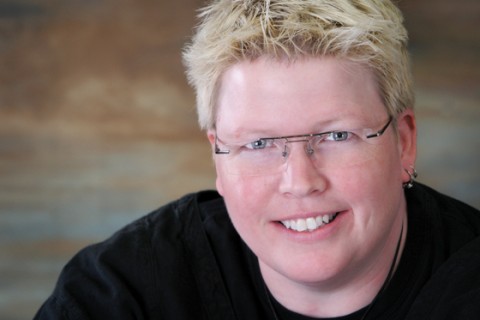"Living my truth" United Methodist pastor Amy DeLong: United Methodist pastor Amy DeLong

United Methodist minister Amy DeLong was charged by the United Methodist Church with violating the church's Book of Discipline on two counts: 1) continuing her ministry while being a "self-avowed practicing homosexual" and 2) conducting a holy union ceremony for two women. In the trial that ended in June 2011, DeLong, a pastor in Osceola, Wisconsin, was found not guilty on the first charge (by a 12 to 1 vote) and guilty on the second charge (by a 9 to 4 vote).
In reference to her guilt on the second charge, the jury asked DeLong, in conjunction with the complainant in the case and other United Methodist clergy, to produce a document (a draft is due this month) that considers how to resolve issues that "harm the clergy covenant, create an adversarial spirit or lead to future clergy trials." The document will be considered at the clergy session of the church's 2012 General Conference.
Can you tell us about your upbringing?
I was born and raised in Rhinelander, Wisconsin. My parents were members of a United Church of Christ church. The irony of that, given all that has happened, is not lost on me—the UCC ordains openly gay clergy and approves of same-sex marriage.




